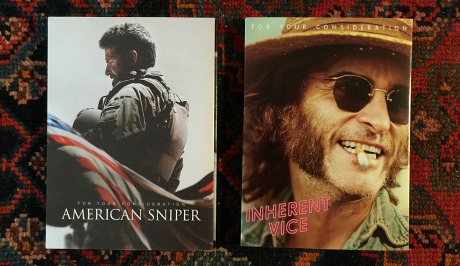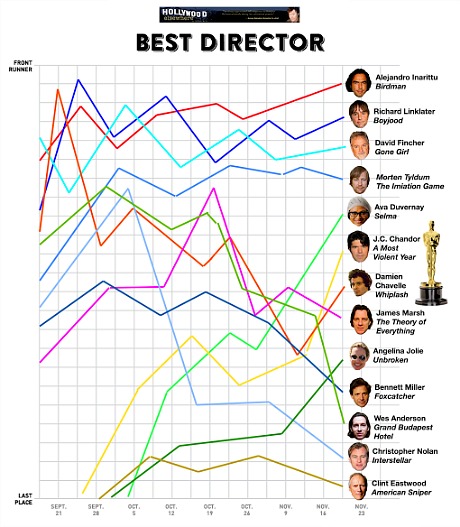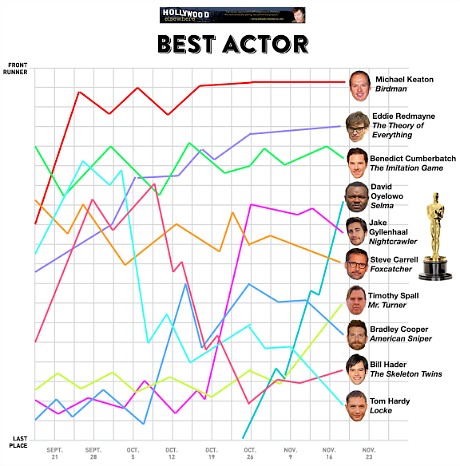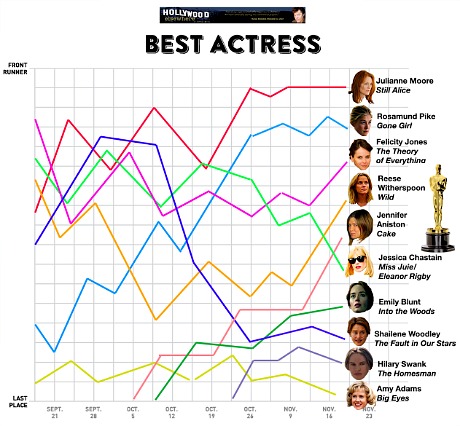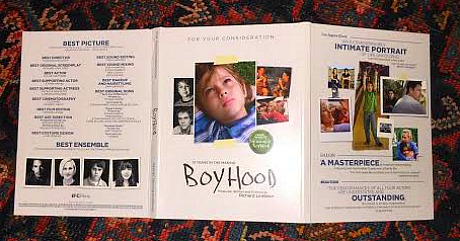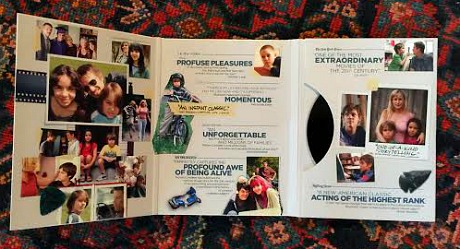I saw about 80% of Jennifer Aniston‘s Cake at the Toronto Film Festival, but I caught it again today (12 noon screening, Pacific Design center) start to finish. It’s basically an acting showcase drama with a highly commendable performance from Aniston, for which she’s currently taking bows around town in hopes of landing a Best Actress nomination. The film over-plays the meditation card and eventually becomes tedious — everybody just ambles along in this thing, behaving and commenting and sometimes weeping and arguing but never doing all that much. (Except, that is, when Aniston and her long-suffering assistant, superbly played by Adriana Barraza, drive to Mexico for pain pills.) But given that it’s a relatively weak year for actresses it’s not that crazy to suggest that Aniston, on the merit of her performance alone, could make the cut. And in so doing she might develop a new career groove in which she makes fewer crap-level successes like We’re The Millers and Horrible Bosses.
 Cake
Cake star & exec producer Jennifer Aniston during this afternoon’s q & a at the Pacific Design Center. She’s dropped the weight she put on for the film, and her blonde hair looked fantastic. (Seriously, if I was a blonde female I’d want my hair to look just like hers. Really.) A young woman from the audience asked if she could have a hug, and of course Aniston obliged…but it felt a bit weird.
Cake is basically an indie slog about acute pain management and working past emotional anguish over some really bad stuff that happened a year or so back. The problem is that Aniston’s middle-aged character, deglammed and scar-faced and dropping handfuls of Percocets for the pain, wears out her welcome around the one-hour mark. The movie fails to pivot (in the Howard Suber sense of that term), and as much as you may enjoy her sharp-tongued commentary about anyone and anything she happens to find irritating or infuriating (including, to her immense credit, Orange County righties), you just don’t want to hang with this suffering crabhead any more. Enough.
But at least Aniston (who exec produced) really gives it hell. She can be quite deft and subtle when she wants to be, always letting you know what’s happening inside with just the right amount of emphasis. And she certainly looks like a wreck with her stiff movements and brown stringy hair and somewhat heavier appearance.
Read more
